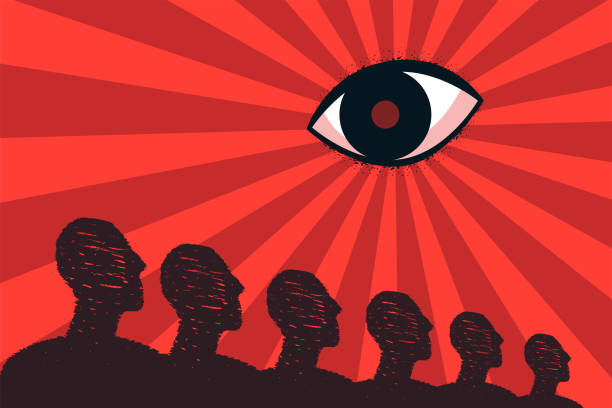
Could Donald Trump Become a Fascist if he were Re-elected? (see below)
Fascism. A far-right, Authoritarian, ultranationalist political ideology and movement, characterized by a dictatorial leader, centralized autocracy, militarism, forcible suppression of opposition, belief in a natural social hierarchy, subordination of individual interests for the perceived good of the nation or race, and strong regimentation of society and the economy.
Fascism is opposite to and opposed to Anarchism, Democracy, Pluralism, Liberalism, Socialism, and Marxism, Fascism is placed on the far-right wing within the traditional left–right spectrum.
Fascism rose to prominence in early 20th-century Europe. The first Fascist movements emerged in Italy during World War I before spreading to other European countries, most notably Germany.
Fascists often advocate for the establishment of a totalitarian one-party state. Fascism’s extreme authoritarianism and nationalism often manifest as a belief in racial purity or a master race, usually blended with some variant of racism or discrimination against a demonized “Other,” such as Jews, LGBTQ+, ethnic minorities, or immigrants.
These ideas have motivated Fascist regimes to commit massacres, forced sterilizations, deportations, and genocide. During World War II, the actions of the Fascist Axis powers, with their genocidal and imperialist ambitions, caused the death of millions of people.
Since the end of World War II in 1945, Fascism as an ideology has been largely disgraced and few parties have openly described themselves as ‘Fascist;’ the term is more often used pejoratively by political opponents.
The descriptions of neo-fascist or post-fascist are sometimes employed to describe contemporary parties with ideologies similar to—or rooted in—20th-century Fascist movements. Some opposition groups have adopted the label anti-fascist or “Antifa” to signify their stance.
Historians, political scientists, and other scholars have long debated the exact nature of Fascism. In his book How Fascism Works: The Politics of Us and Them (2018), Jason Stanley defined Fascism as “a cult of the leader who promises national restoration in the face of humiliation brought on by supposed Communists, Marxists and minorities and immigrants who are supposedly posing a threat to the character and the history of a nation” and that “The leader proposes that only he can solve it and all of his political opponents are enemies or traitors.”
Fascism may be said to be a preoccupation with supposed community decline, humiliation, and/or victimhood.
In short, the difference between Fascism and Authoritarianism is that Fascism is revolutionary, seeking to improve society through total commitment from the population, whereas Authoritarianism serves to conserve the existing social order.
- Fascist Leaders: Argentina (Juan Perón), Germany (Adolf Hitler), Italy (Benito Mussolini) Japan (Hideki Tojo), Spain (Francisco Franco)
- Communist/Authoritarian Leaders: Belarus (Alexander Lukashenko), Cambodia (Hun Sen), China (Mao Zedong, Xi Jinping), Cuba (Fidel Castro), Nicaragua (Daniel Ortega), Romania (Nicolae Ceaușescu), Russia (Vladimir Putin), Soviet Union (Joseph Stalin), Venezuela, (Nicolás Maduro), Vietnam (Ho Chi Minh)
- Nationalist/Authoritarian Leaders: Egypt (Abdel Fattah el-Sisi), North Korea (Kim Il Sung, Kim Jong Il, Kim Jong Un), Philippines (Rodrigo Duterte), Saudi Arabia (Mohammed bin Salman), Syria (Bashar al-Assad), Türkiye (Recep Erdoğan)
The British author George Orwell noted in 1944 that the term is almost entirely meaningless… “almost any English person would accept ‘bully’ as a synonym for ‘Fascist,’” he wrote, “’Fascism’ has now no meaning except in so far as it signifies something not desirable.”
The American author Sinclair Lewis is credited with saying: “When Fascism comes to America, it will be wrapped in the flag and carrying a cross“? (source not verified). Meaning: that American Fascism would be a hybrid of extreme Nationalism and extreme Christianity.
Could American Donald Trump Become a “Fascist” if he were Re-elected?
To recap, Authoritarianism involves centralizing power, limiting political freedoms, and controlling various aspects of society, as noted in your list of leaders. Fascism, a specific subset of Authoritarianism, generally includes:
– A dictatorial leader
– A centralized autocratic government
– Severe economic and social regimentation
– Suppression of opposition through terror and censorship
– Often, a policy of belligerent nationalism and racism
Examining Trump’s record, some points often raised in discussions about Authoritarian tendencies include:
– Attempts to Undermine Democratic Institutions: Criticism of the electoral process, claims of widespread voter fraud, and efforts to overturn election results.
– Control Over Media: Frequent attacks on the press, labeling mainstream media as “fake news,” and attempts to delegitimize critical media outlets.
– Suppression of Dissent: Use of Federal forces against protesters, and aggressive rhetoric against political opponents and critics.
– Nationalism: Policies and rhetoric emphasizing “America First,” immigration restrictions, and nationalist sentiments.
Trump should face significant checks and balances from other branches of government, the media, and civil society, which constrained his ability to fully centralize power. However, the Supreme Court now seems to back Trump, and given the possibility of poor election results in Congress for Democrats in Nov. 2024, both House and Senate could become pro-Trump.
See also: Totalitarianism